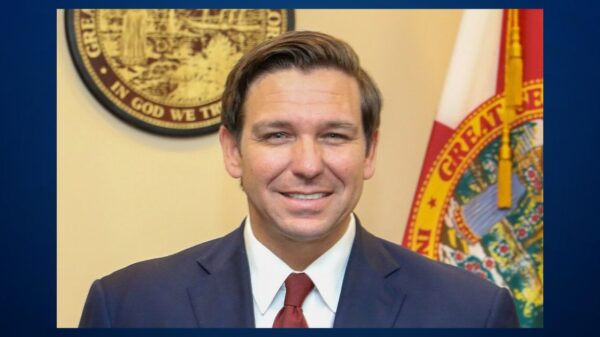TALLAHASSEE — Despite strong opposition from Governor Ron DeSantis, the Florida House approved a bill on Wednesday aimed at diminishing the governor’s power in selecting presidents for the state’s public universities and colleges.
The measure, House Bill 1321, prohibits elected officials—including the governor—from communicating with higher education leaders regarding current or upcoming presidential vacancies. The bill received bipartisan support, although a small number of Republicans opposed it.
Governor DeSantis criticized the proposal, claiming it threatens his educational agenda and represents a step toward the “rewokification” of Florida’s higher education system. “They do not want elected officials to hold universities accountable,” DeSantis stated this week. “They will revert back to leftist ideology.”
In response, Republican Representative Michelle Salzman of Pensacola, who sponsored the bill, emphasized that it is not an attack on DeSantis but rather an effort to increase transparency in government. “This is about transparency in government,” Salzman stated during the House floor debate.
The bill also seeks to repeal a 2022 law that kept presidential search records confidential, specifically the names of candidates who were not selected as finalists.
In addition to transparency reforms, HB 1321 proposes term limits for the State University System’s Board of Governors, the State Board of Education, and the boards of trustees for state colleges and universities. Members of the Board of Governors would be limited to a single seven-year term and would be required to file financial disclosures. Furthermore, the bill mandates that members of these governing boards either be Florida residents or alumni of a Florida public university. For trustees, non-residents must be graduates of the institution they serve.
One significant change under the bill would eliminate the requirement for the Board of Governors to approve presidential selections made by individual university boards of trustees. However, the governor would still hold considerable influence, as he appoints the majority of members to both the Board of Governors and the trustees. “We are not removing the governor’s power,” Salzman emphasized. “He appoints the people that are making these choices.”
This legislation follows recent headlines regarding university appointments, including former Lieutenant Governor Jeanette Nuñez being named interim president of Florida International University earlier this year. DeSantis also acknowledged advocating for former state lawmaker Randy Fine to lead Florida Atlantic University, although he later suggested it was partly to move Fine out of the Legislature. Fine, for his part, told Florida Politics that the governor encouraged him to apply for the position.
A companion bill in the Senate, SB 1726, differs from the House version. It does not restrict the governor from advocating for presidential candidates and maintains current public records exemptions, but it would require at least three finalists to be named in presidential searches.
At a press conference on Wednesday, DeSantis predicted that the Senate would reject the House’s bill. “I don’t think that’s going to get on the desk,” he said. “If it does, we’ll invite you all to the ceremony where we’ll veto it.”























